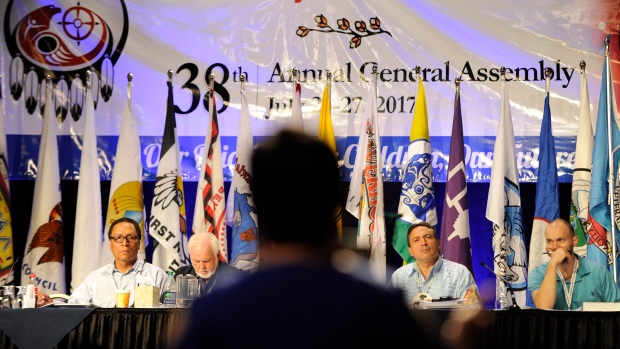There are calls to end the long-standing practice of hazing within the ranks of the Assembly of First Nations.
Rookie chiefs say they’re fed up with bullying and humiliating pranks they claim they’re subjected to from their more senior colleagues, a practice that usually continues during their first term as an elected official.
“It’s getting out of hand and it needs to end,“ said Chief Hector Moneyas, 47, who is six months into his four year term as leader of the Hollow River First Nation in Manitoba.
“I come to these meetings to be a voice for my people, not get put into a headlock by [British Columbia Chief] Judy Wilson or be subjected to a “grand wedgie” from [Saskatchewan Chief] Bobby Cameron.”
Moneyas and several other freshman chiefs from across the country are going to table a motion at the AFN’s annual assembly in December, seeking an outright ban on hazing.
But the motion is likely to be met with fierce opposition from senior chiefs, who view hazing as harmless but necessary teambuilding.
“This is a tradition that goes back to the earliest days of this organization and how we bond as leaders,” said regional chief George Erasmus.
“Besides, this is nothing. Those little shits should have been around when [former National Chief] Ovide Mercredi used to paddle newbs. Now that was hazing.”
Erasmus told reporters that during former National Chief Phil Fontaine’s administration, the Executive Committee locked 13 freshman chiefs in their headdress lockers. While National Chief Matthew Cooncome was known to force fledgling chiefs to eat smoked moosemeat until they passed out.

